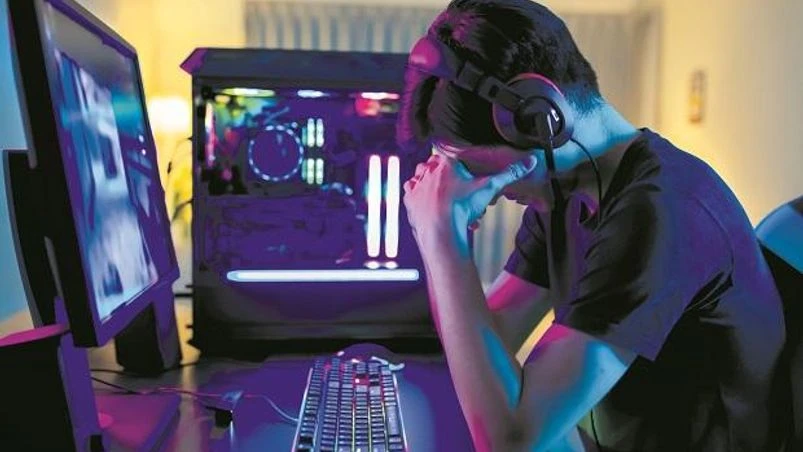 What does the future of online gaming with stakes look like in India?
What does the future of online gaming with stakes look like in India?
Online gaming with stakes is navigating a maze of laws and courts in India. Let's take a peek into the realm of online gaming in India and the thin line separating skill-based and chance-based games
)
Before we delve into the details, let us first skim through the difference between a skill-based game and a chance-based game. Chance-based games are banned in most states, while games of skill are not.
In a game of skill, the player invests his time in learning, practising and honing a skill. In its 1957 order, the Supreme Court had said that games of skill would be where “success depends principally upon the superior knowledge, training, attention, experience and adroitness of the player”. Games can be a combination of skill and chance, but skill has to be the predominant factor.
With IPL just around the corner, fantasy gaming platforms such as Dream11 and Mobile Premier League have just received good news in a state that is home to one of their major markets.
On 14th February 2022, the Karnataka High Court struck down select provisions of the Karnataka Police (Amendment) Act 2021, through which the state government had banned online games that involved monetary stakes.
This comes as a huge relief for India’s online skill gaming and fantasy sports industry. The judgement follows other similar ones given by the Rajasthan, Punjab and Haryana, and Bombay high courts that recognised fantasy sports as games of skill and a legitimate business activity protected under the Constitution of India.
In October last year, the law banning betting and wagering in online games had been notified by the Karnataka government.
More From This Section
The Karnataka law stated that “games of chance” such as betting websites and online casinos should be banned. Additionally, it said that “games of skill”, where there is a risk of the player losing money, should be banned too.
However, several Indian courts have previously called games such as fantasy sports, poker, and rummy “games of skill” and deemed them legal. The Supreme Court, too, upheld Dream11’s online fantasy sports format as a “game of skill”.
One of the primary grounds on which the new Karnataka law was challenged was that games of skill, if they were being played for prizes or bets, had been clubbed with games of chance.
Gaming companies argued that according to a Supreme Court order in 1957, competitive games of skill are to be considered business activities that are protected under Article 19 (1) (g) of the Indian Constitution.
While the status of games of chance remains unchanged, with the 14th February judgement, at least for the time being, residents of Karnataka should be able to play online games of skill even if monetary stakes are involved.
A win in Karnataka is morale boosting for the industry. There is a thriving online gaming ecosystem based out of Karnataka’s capital, Bengaluru. In fact, the state is reportedly home to at least 91 Indian gaming companies and developers.
To understand the business impact of this verdict, one has to consider the size of the Indian gaming ecosystem. According to a 2021 report published by VC firm Sequoia and management consulting company BCG, India’s mobile gaming sector will grow from 1.5 billion dollars in revenue in 2020 to 5 billion dollars by 2025.
The report said that while Indian gaming companies initially made money through in-game advertising, 80 per cent of the 1.5 billion dollars generated by mobile gaming in 2020 came from real-money game spends and in-app purchases.
In fact, there are now more than 300 million gamers in India. Meanwhile, revenue across all gaming devices hit 1.8 billion dollars in 2020, up 500 per cent from 2016.
However, the relief provided by the Karnataka High Court could be short-lived. The bench made it clear that the entire Act is not struck down and the judgment will not stand in the way of the legislature bringing in a new law in consonance with the Constitution against gambling.
After the verdict came out, Karnataka's Home Minister, Araga Jnanendra, told a financial daily that the state government might draft a new law to prohibit online gambling and betting.
Jnanendra said that the government was studying the judgment in detail, especially focussing on the sections of the law that were found to not be in conformity with the Constitution.
The home minister added that the state government would prefer to rectify the identified shortcomings so that the new draft would be able to stand in a court of law. According to him, the government remains committed to banning betting and gambling in online games with appropriate legislation.
The apex court, in three separate judgements, has set the record straight. In 1957, it had said that games where there was a certain level of skill involved should not be considered gambling. In 1968, it allowed the establishments to collect a small fee for maintaining and running the same for games of skill, like rummy. It said that rummy involved considerable skill and was not a pure game of chance. In 1996, the court ruled that horse racing was a game of skill, and, accordingly, not gambling.
Watch video
Also Read
Don't miss the most important news and views of the day. Get them on our Telegram channel
First Published: Feb 17 2022 | 8:15 AM IST

